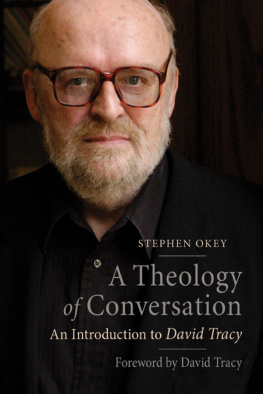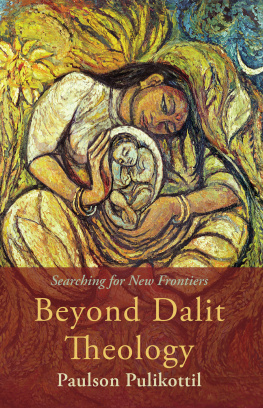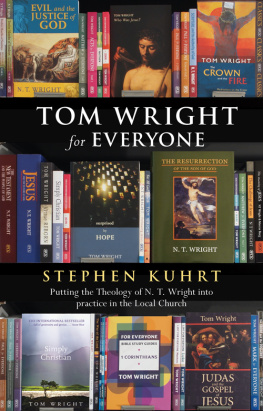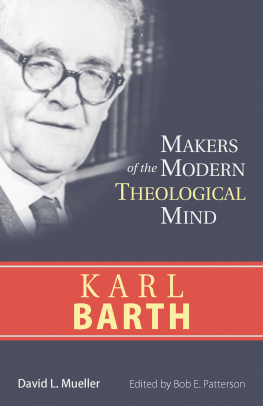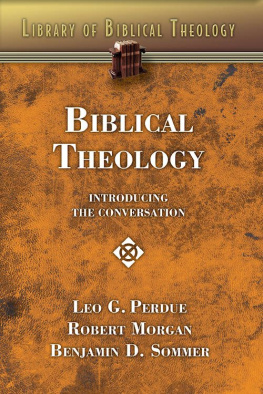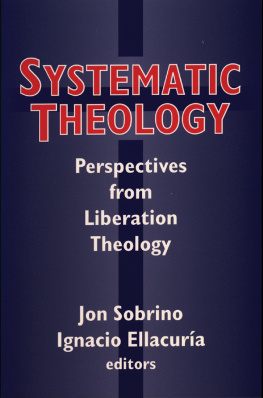Given that David Tracy is, without question, one of the most important theologians in the contemporary period, one wonders why there are not more accessible introductions to this theologians theologian. Stephen Okeys work wonderfully fills that urgent need! He covers all the major themes of Tracys work thus far, pitching them perfectly for the reader to want to plunge into a more careful study of Tracys work itself. This is no small feat and an incredible service for all the publics of theology. Kudos!
Dr. Julius-Kei Kato, SSL, PhD
Kings College, Western University
London, Ontario, Canada
The breadth and depth of David Tracys theological scholarship and understanding is breathtaking for those who want to grasp the complexity of contemporary culture and its religious dimensions. Stephen Okeys A Theology of Conversation provides a clear and solidly researched guide through the many developments in Tracys work. By focusing both on the prominent themes in Tracys theology, as well as the chronological development of those themes throughout the entire corpus of Tracys writings, Okey has admirably given all of us a guide to David Tracys thinking and introduced his work to the next generation of those who want to understand what theology is all about.
John McCarthy
Loyola University Chicago
With his deft introduction to David Tracys wide-ranging work, Stephen Okey has chosen just the right point of entry. For Tracy is a theological and cultural conversationalist par excellence, willing to dialogue with all who share his obsession with the hidden, impossible, and loving God. Okeys insightful analysis of Tracys focal concerns provides a clear map to the contributions of one of the most interesting and important theologians of our time.
Anthony J. Godzieba
Professor of Theology and Religious Studies
Villanova University
Okey is a sure guide to the complex and demanding work of one of Americas most original theologians. Tracys sophisticated project of theological conversation is much needed in our age of shallow, closed thinking and polarization.
Vincent J. Miller
Gudorf Chair in Catholic Theology and Culture
University of Dayton
Stephen Okeys lucid and insightful introduction to David Tracys theology as conversation is a welcome antidote to what passes for theological discourse in our fractured attempts to speak about God, self, and world in a situation of religious pluralism. His presentation of Tracys project in conversation with other interlocutors emulates the very model of theology as conversation that Tracy presents. I highly recommend it!
Mary Ann Hinsdale, IHM
Boston College
Cover design by Monica Bokinskie. Photo courtesy of The University of Chicago Divinity School.
Excerpts from documents of the Second Vatican Council are from Vatican Council II: The Conciliar and Postconciliar Documents, edited by Austin Flannery, OP, 1996. Used with permission of Liturgical Press, Collegeville, Minnesota.
2018 by Order of Saint Benedict, Collegeville, Minnesota. All rights reserved. No part of this book may be used or reproduced in any manner whatsoever, except brief quotations in reviews, without written permission of Liturgical Press, Saint Johns Abbey, PO Box 7500, Collegeville, MN 56321-7500. Printed in the United States of America.
Library of Congress Cataloging-in-Publication Data
Names: Okey, Stephen, author.
Title: A theology of conversation : an introduction to David Tracy / Stephen Okey.
Description: Collegeville, Minnesota : Liturgical Press, 2018. | Includes bibliographical references.
Identifiers: LCCN 2018022814 (print) | LCCN 2018034325 (ebook) | ISBN 9780814684429 (ebook) | ISBN 9780814684184
Subjects: LCSH: Tracy, David. | Catholic ChurchDoctrines.
Classification: LCC BX4705.T73545 (ebook) | LCC BX4705.T73545 O34 2018 (print) | DDC 230/.2092dc23
LC record available at https://lccn.loc.gov/2018022814
For Paige
Contents
Foreword
It is an honor to introduce this fine, thoughtful, critical book by Professor Stephen Okey. Professor Okey not only writes excellently about the nature of a pluralistic theology grounded in conversation or dialogue; he practices his theory.
Since Plato, dialogue or conversation has proved one of the major forms of thinking in Western culture. Conversation includes argument, not the reverse.
It is a misfortune that we lack the dialogues of Platos most famous student, Aristotle. Both Cicero and Quintilian praised Aristotles dialogues. We possess only fragments of a few of them. Happily we do possess the arguments in treatise form of Aristotle: some from student notes (as with a good deal of what we have from Hegel). Some of the texts of Aristotle that we do possess were probably edited by his own hand as their more conceptually defined and stylistically refined form shows (for example, Aristotles splendid Nicomachean Ethics).
But Plato with his incomparable dialoguesCicero and Hume are the only real competitors to Platoalways included arguments and close analysis when clarity or evidence demanded them. Aristotle, famously called by Dante the master of those who know, is indeed the master of logical analyses and of evidential scientific reasoning. He was, after all, a marine biologist far less interested in the role of mathematics for philosophy than was Plato but far more given to careful analytical definitions (i.e., propositions that apply to all cases of Xe.g., justiceand only cases of X) than earlier philosophers, including Plato.
My own intellectual instincts, as Professor Okey makes clear and persuasive, have always been more with Plato and with Hans-Georg Gadamer on conversation as the primary intellectual mode. However, I have always tried to be completely open, as Professor Okey consistently argues, to the need for arguments when necessary (as they so often are). At the same time I have learned from mentors like Bernard Lonergan with his love of modern scientific reasoning and cognitional theory and from Paul Ricoeur with his brilliant corrective of Gadamer by adding explanatory theories to the model of conversation. This brief excursus on conversation and argument may serve, I hope, as praise for Professor Okeys expertise in both.
Besides a theory of conversation, which Professor Okey persuasively finds in my work, he also possesses strong interpretive skills as well as conversational and argumentative skills that he employs to both hermeneutical and conversational-argumentative effect through his calm, considered work of interpretation, analysis, and critique.
Professor Okey employs his considerable hermeneutical skills in his very selection of categories and themes in my work that he chooses as central:
conversation itself;
theology as public;
pluralism (not only plurality);
a lifelong concern (thanks to early study with Bernard Lonergan) with the issue of theological method;
the relationship of the categories, a classic and a fragment, whose intrinsic relationship and difference Professor Okey brilliantly interprets;
a Christology related principally to an interpretation of New Testament Christologies and of some contemporary christological controversies (e.g., on the christological role, or lack thereof, in the endless debates on the quest for the historical Jesus);
above all, on the question of Godas Duns Scotus saw so clearlythe category of the Infinite is the first name for God both metaphysically and theologically (i.e., from God as metaphysically Infinite to the trinitarian understanding of God as Infinite Love).

